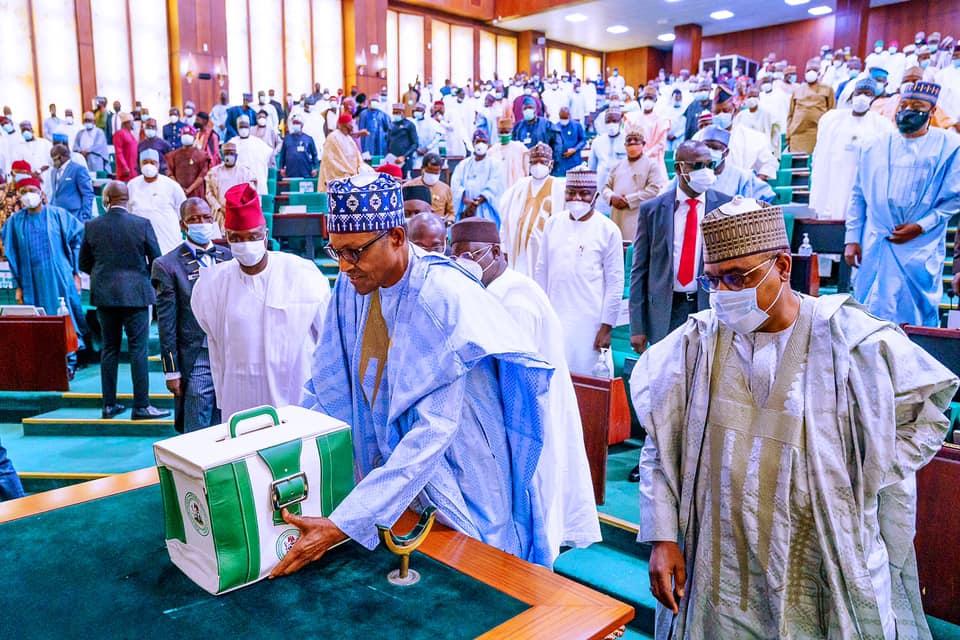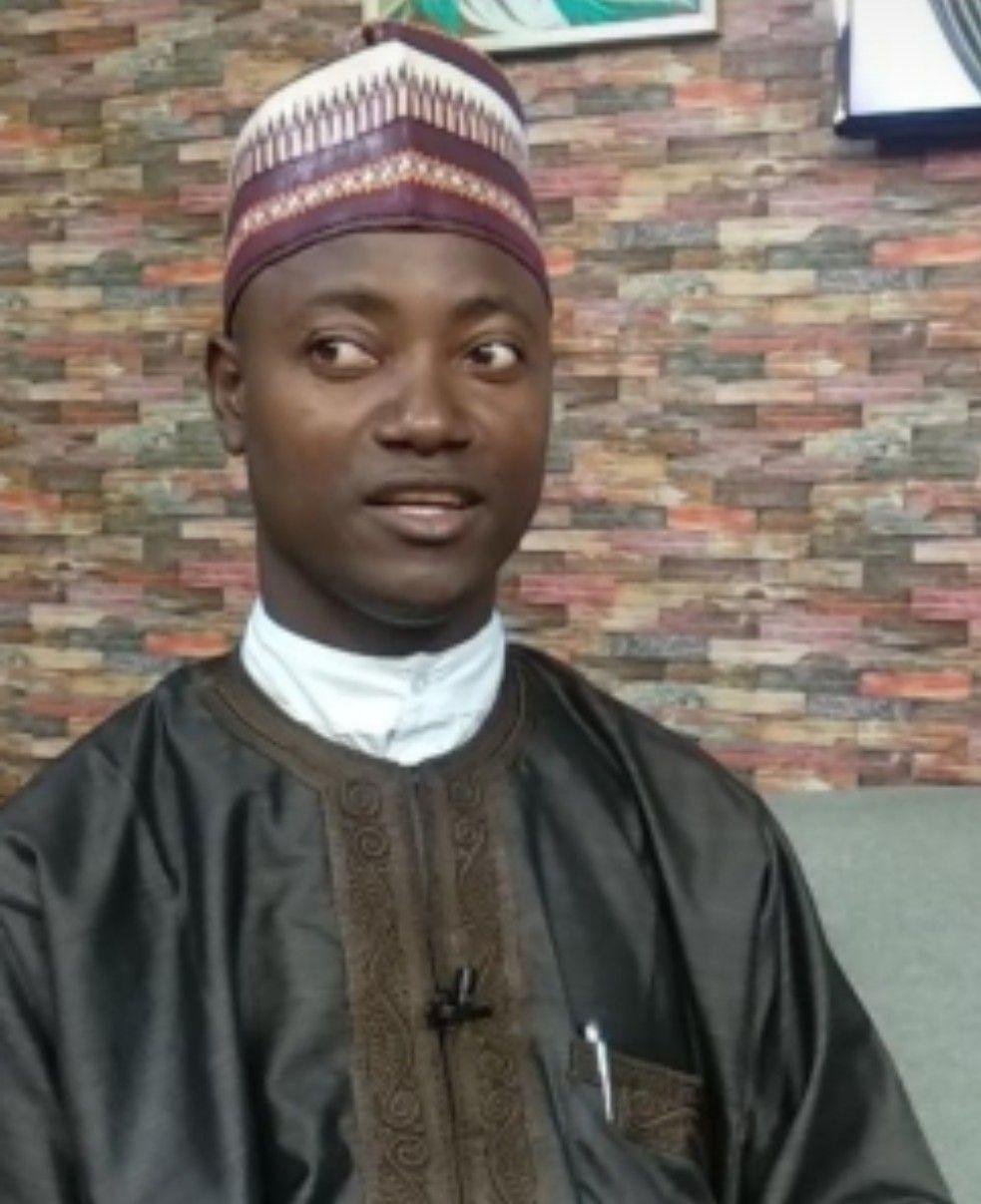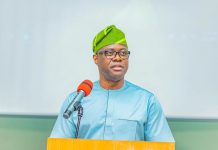
Africa-Press – Nigeria. The 2023 budget proposal is estimated at 20.5 trillion Naira, a fiscal year with a deficit of about 12.41 trillion.
The budget proposal was estimated base on the main revenue source of Nigeria which is crude oil and non oil revenue.
On the benchmark of 70 dollars per barrel and at the exchange rate of 435.57 naira to Dollar and inflation rate of 17.16 percent.
The 2023 budget is higher than that of 2022 which was 17.126 trillion with deficit of 6.25 trillion Naira.
During a recent interactive session with national house of Assembly in preparation to 2023 budget presentation to the joint chambers of senate and House representative the Minister of finance and National planing Zainab Ahmed said Federal government will borrow over 11 trillion Naira and sell some of the national assets to finance the budget deficit of 2023
President Buhari Presents 2023 budget proposal to the National Assembly on Friday 7th September 2023.
Nigerian President Muhammadu Buhari has presented a proposed budget of N20. 5 trillion Naira for the 2023 financial year to a joint session of the National Assembly.
According to the president, the 8th financial blueprint of his administration has been tagged ” the budget of Fiscal Sustainability and transition”
He said the 2023 budget was designed to address critical issues and lay a solid foundation for the incoming administration.
Buhari stated that he believes based on these fiscal assumptions and parameters, total revenue to be collected by Government is estimated at 16.87 trillion Naira in 2023.
He further added that the total revenue to be distributed among three tiers of Government is estimated at 11.09 trillion Naira in 2023. while the total revenue available to fund the 2023 Federal Budget is estimated at 9.73 trillion Naira including the revenues of 63 governments owned Enterprises.
The president also disclosed that oil revenue is projected at 1.92 trillion Naira, Non soil taxes are estimated at 2.43 trillion Naira, and Federal Government Independent revenues are projected to be 2.21 trillion Naira.
Other revenues total are 762 billion Naira, while the retained revenues of the Government Own Enterprises amount to N2. 42 trillion Naira.
president Buhari said the 2023 Appropriation Bill is also aim at maintaining the focus of Ministries Department and Agencies on the revenue side of the budget and greater attention to internal revenue generation.
“Sustenance of revenue diversification strategy would further increase the non oil revenue share of total revenues,” President Buhari stressed
While N2.42 trillion Naira would be for spending by governments owned Enterprises, the proposed 20.5 trillion Naira 2023 expenditure comprises:
Statutory Transfers of N744.11 billion; None debt Recurrent Costs of N8.27 trillion; Personnel Costs of N4.99 trillion; Pensions, Gratuities, and Retirees’ Benefits of N854.8 billion; Overheads of N1.11 trillion; Capital Expenditure of N5.35 trillion, including the capital component of Statutory Transfers; Debt Service of N6.31 trillion; and Sinking Fund of N247.73 billion to retire certain maturing bonds.
The president said the government expects a total fiscal operation to result in a deficit of 10.78 trillion Naira.
This he noted represents 4.78 percent of the estimated Growth Domestic Product , above the 3 percent threshold set by the Fiscal Responsibility Act 2007.
He said as envisaged by the law, his government need to exceed this threshold considering the need to continue to tackle the existent security challenges facing the country.
Mr. Buhari revealed that the government plans to finance the deficit mainly by new borrowings totaling 8.80 trillion Naira, 206.18 billion Naira from Privatization Proceeds, and 1.77 trillion Naira drawdowns on bilateral and multilateral loans secured for specific development projects and programs
Is borrowing to finance the 2023 Nigeria’s budget a solution to the lingering economic problem face by the Buhari’s Government ?
Dr. Abdussalam Muhammad K’ani is an economic analyst and the Executive Director fiscal Discipline and Development Advocacy Centre (FIDAC).
He said loan or debt from economic point of view is a source of Government revenue .
The economist said Nigeria’s source of revenue include money from oil, non oil revenue and internally generated revenue (IGR) . Other sources are grants ,Aids and loans.
These are the main source that Nigeria use in getting fund to finance it ‘s yearly expenditure.
The Economist stated that loan or debt has no harm to any nation Nigeria inclusive if use judicially.
Nigerian fiscal responsibility act 2007 in section 41 and 44 has clearly stated the conditions for contracting loans as follows ;
Firstly Government shall only borrow for capital expenditure or human capital development and any loan related to recurrent expenditure such as wages ,salaries and taking care of staff training should not be entertained.
Secondly the government intending to borrow is expected to under take cost benefit analysis detailing the social and economic implication or benefit of the loan.
Thirdly as part of the conditions the government shall only go in to concessional borrowing meaning government should go for a loan with lowest interest rate and longest period of payment.
He added that the debt process should also consider
Growth Domestic product -GDP to debt ratio which means the loan should not exceed 3% of Government GDP.
And the loan should be presented to the national Assembly at Federal level and state House of Assembly at states level.
It is the responsibility of the legislature to study the loan, ensure the compliance of section 41 and 44 of fiscal responsibility act .2007.
As loans failed to improved Nigerians welfare what is the way out ?
The executive Director fiscal Discipline and Development Advocacy Centre (FIDAC) said since it evidently show that debt failed woefully in improving the well being of Nigerians by reducing poverty, generating employment , improving the condition of Industries and reducing massive and systematic corruption that dominate all levels of government.
And also can not help in improving the power sector , and restoring the value of Nigeria’s currency – Naira.

Dr. K’ani suggested that Nigeria should instantly place an embargo on any new loan .
“Nigeria should be a serious nation by stopping any future loan because if care is not taken Nigeria will be like Greece as it is heading towards bankruptcy a situation where you can not pay the debt and there is no where it can get any other loan.”
He prescribed that Nigerian government should be serious in expanding the nation sources of revenue by diversifying the economy .
The economic analyst said he is not advocating for tax increment but rather expanding the tax net as there are many individuals and companies that are either evading tax or avoiding it.
He advised the government to ensure that any taxable individual ,companies ,Corporate bodies and properties paid their tax as when due and according to the laws.
As part of diversification measures Nigeria should focus more on it’s abundant arable land by engaging in to mechanise Agriculture in order to feed it self and export for foreign earnings.
Dr K’ani also said there is need for Nigeria to make real and genuine massive investment in the power sector and overhaul the industries in order to restart production for both domestic and exportation purposes.
He stressed the need to reduce the cost of governance so as to channel the resources to product sectors of the economy.
For More News And Analysis About Nigeria Follow Africa-Press






